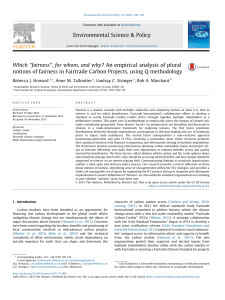Are Trade Carbon Credits Ethical?
Trade Carbon Credits Ethical
When it comes to saving the planet, a business will have to buy carbon credits. These are the monetary value of polluting air and can be used to offset the carbon emissions of a larger group. The market is a winner for those seeking to reduce their carbon footprint without breaking the bank.
However, this is not the only way for a trade carbon credits company to reduce its carbon footprint. Some companies are using technology to capture carbon from the atmosphere. Others are reducing their energy consumption or even switching to renewable energies such as solar power. In fact, energy use is expected to keep rising, which means more companies are buying into the carbon reduction market. These companies may or may not do the right thing.

One example is Gujarat Fluorochemicals Limited, a company based in India. The company has made a mint off of the sale of carbon credits to European companies. These credits aren’t exactly clean-air friendly, but they are the next best thing to the carbon-free sky.
Are Trade Carbon Credits Ethical?
Another example is the Red Cross’s attempt to deal with climate change. They have a pretty cool idea involving a swine farm supplying methane gas for an alternative fuel power station. It’s not as flashy as the carbon-credit model, but it’s the next best thing to a wind turbine. In this instance, the Red Cross can show off their green credentials, but there’s no guarantee they will actually do anything.
The best way to save the world is to force businesses to make the necessary changes. While it’s true that a company will eventually have to purchase carbon credits, the cost of doing so will be a fraction of what they’d pay in the first place. Moreover, if the government has to foot the bill, that may deter them from committing to a green investment. The most cost-effective option is to simply encourage them to do the smart thing.
One of the best ways to do this is to give them the opportunity to trade carbon credits with other countries, especially the developing ones. These nations are more likely to do the right thing. For instance, Indonesia already protects its forests under national laws. But there are some big hurdles to clear before it can achieve full carbon neutrality.
The carbon reduction market is a great way for businesses to do the right thing, while also putting money in the pockets of the less fortunate. And it’s no wonder people are curious about how these technologies work. Some companies are also interested in a well-designed and executed program, because they want to stay competitive in an ever-increasing global marketplace. They might as well have the best product to offer their customers.
Although it’s not a perfect solution, the carbon reduction market has got to be the smartest thing to happen in the last decade. Unlike the previous generation of emission control schemes, this approach isn’t confined to the developed world.